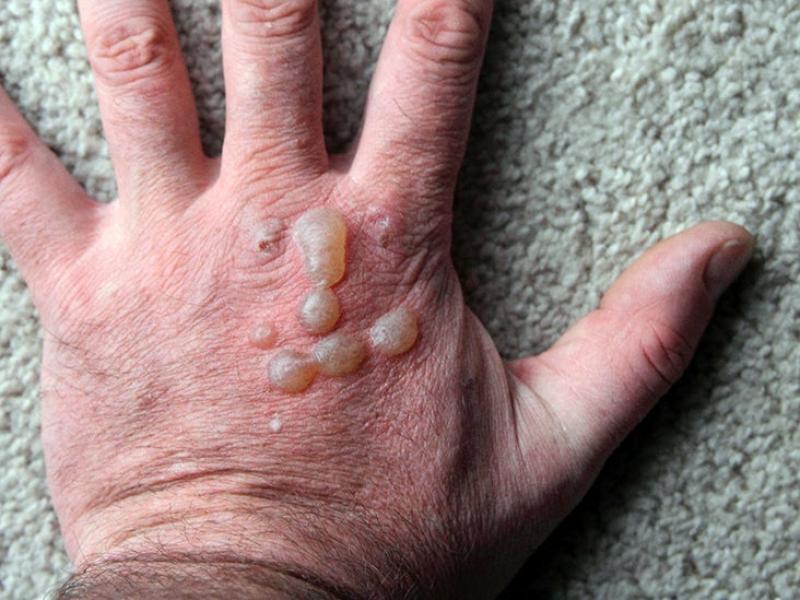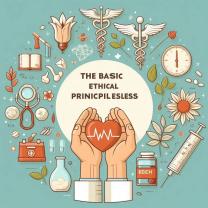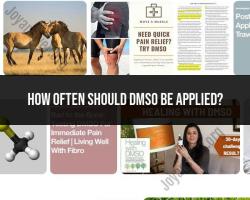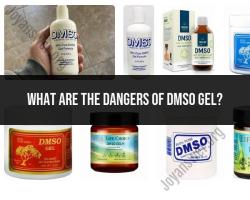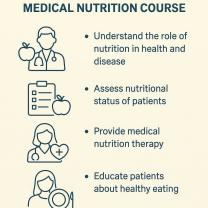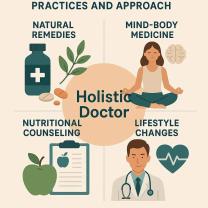What causes tiny itchy blisters on hands?
Tiny itchy blisters on the hands can be caused by various factors, including skin conditions, allergic reactions, or irritants. Some possible causes include:
Contact Dermatitis: This condition occurs when the skin comes into contact with irritants or allergens, leading to redness, itching, and the formation of small blisters. Common irritants include soaps, detergents, chemicals, or certain plants like poison ivy or poison oak.
Dyshidrotic Eczema: Also known as pompholyx, dyshidrotic eczema is a type of eczema that leads to the development of small, itchy blisters on the hands and fingers. The exact cause is unclear but can be triggered by stress, allergies, or exposure to certain metals or substances.
Fungal Infections: Fungal infections like tinea manuum can cause blisters, redness, and itching on the hands. These infections are caused by fungi and can spread through contact with contaminated objects or surfaces.
Viral Infections: Certain viral infections, such as herpes simplex virus (HSV), can cause small, painful blisters on the hands (herpetic whitlow). These blisters may be accompanied by tingling or burning sensations.
Allergic Reactions: Allergies to certain foods, medications, or materials in gloves or jewelry worn on the hands can result in itchy blisters upon contact.
Stress or Hormonal Factors: Stress and hormonal changes can sometimes trigger skin reactions, leading to the formation of small blisters on the hands.
Remedies and Treatment:
Avoid Irritants: Identify and avoid potential triggers or irritants that may be causing the blisters.
Keep Hands Clean: Wash hands gently with mild soap and lukewarm water, pat them dry, and avoid harsh scrubbing.
Moisturize: Apply a gentle, fragrance-free moisturizer to keep the skin hydrated and soothe itching.
Topical Treatments: Over-the-counter hydrocortisone creams or ointments can help reduce inflammation and itching. Antifungal creams may be useful if a fungal infection is suspected.
Cool Compresses: Applying cool, damp compresses or taking cool baths can provide relief from itching and help reduce inflammation.
Consult a Healthcare Professional: If the blisters persist, worsen, or are accompanied by other concerning symptoms, consult a dermatologist or healthcare professional for proper diagnosis and treatment. They can provide appropriate medications or further guidance based on the specific cause of the blisters.
Several common causes can lead to the formation of small, itchy blisters specifically on the hands. These causes can be broadly categorized into two main groups: non-contagious and contagious.
Non-contagious Causes of Hand Blisters:
Dyshidrotic Eczema: A skin condition characterized by small, fluid-filled blisters on the palms, sides of the fingers, and sometimes the soles of the feet. The exact cause is unknown, but it may be triggered by stress, sweating, or exposure to certain chemicals or allergens.
Pompholyx: A less common skin condition similar to dyshidrotic eczema, but the blisters are larger and deeper. The cause of pompholyx is also unknown, but it may be linked to allergies or autoimmune disorders.
Contact Dermatitis: An allergic reaction to a substance that touches the skin, causing inflammation, redness, and blisters. Common culprits include latex, nickel, fragrances, and certain plants.
Friction or Repetitive Motion: Rubbing against tools, sports equipment, or musical instruments can cause blisters to form. Repetitive hand movements, such as typing, writing, or using tools, can also lead to friction and blister formation.
Heat and Moisture: Hot and humid environments can soften the skin, making it more vulnerable to friction and blister formation. Sweat can also increase friction and contribute to blister development.
Contagious Causes of Hand Blisters:
Impetigo: A bacterial skin infection that causes small, fluid-filled blisters that can rupture and form a honey-colored crust. It is more common in children and is often spread through direct contact.
Herpes Simplex Virus: The virus that causes cold sores can also cause blisters on the hands, especially near the fingers. The blisters are typically small and painful, and they may appear in clusters.
Role of Skin Sensitivity and Allergies:
Skin sensitivity or allergies can play a significant role in the formation of blisters on hands. Individuals with sensitive skin are more prone to developing blisters from contact with irritants or allergens. Common triggers include:
Soap and detergents: Harsh soaps and detergents can strip away the skin's natural oils, making it more susceptible to irritation and blistering.
Chemicals: Exposure to harsh chemicals, such as those found in cleaners, paints, or solvents, can cause allergic reactions and lead to blister formation.
Plants: Certain plants, such as poison ivy, poison oak, and poison sumac, contain substances that can cause allergic reactions and blisters.
Metals: Individuals with nickel allergies may develop blisters when they come into contact with nickel-containing jewelry, tools, or other objects.
If you have recurring or persistent hand blisters, it is essential to consult a dermatologist or healthcare provider to determine the underlying cause and receive appropriate treatment.
